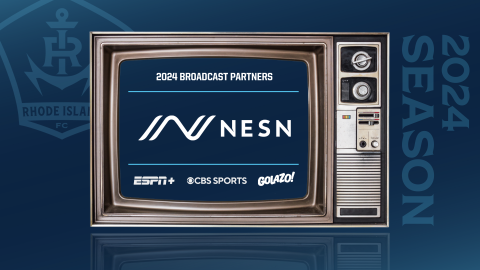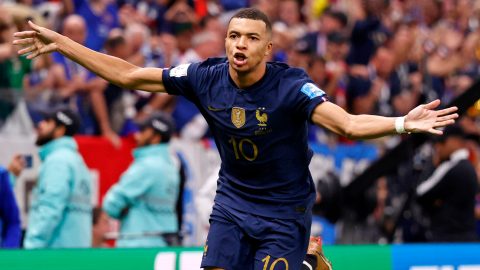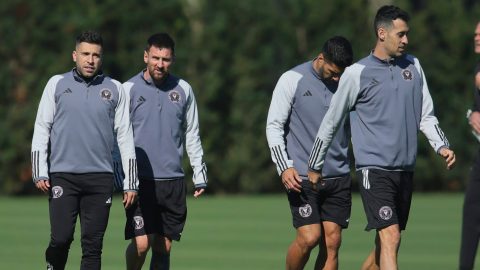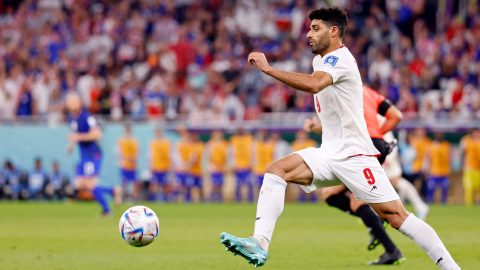 By most accounts, Robbie Rogers is a private man who keeps counsel with himself and an inner-circle of family and friends.
By most accounts, Robbie Rogers is a private man who keeps counsel with himself and an inner-circle of family and friends.
Those closest to him may not have been shocked when he publicly revealed that he was gay, but the soccer world received his announcement as if a bombshell had been dropped on it. Therein lies the problem.
Rogers’ revelation was such a big deal because there remains a stigma around the issue of homosexuality in the macho world of men’s professional soccer. Instances of homophobia and intolerance are reportedly the norm, rather than the exception. Would it be headline news if one of your colleagues or someone in your industry came out of the closet? Probably not, but it is for a male professional soccer player.
There are no openly gay male athletes in Major League Soccer or any of North America’s four major team sports. Anton Hysen is the only openly gay professional soccer player currently playing in Europe. He plays for Utsiktens BK in Sweden’s third division. In 1990, Justin Fashanu became the first British-based player to reveal his homosexuality. He played for 22 clubs in his 19-year career before committing suicide in 1997. Rogers became the second British-based player to come out of the closet on Friday.
In some ways, (professional) soccer’s attitudes toward members of the LGBTQ (lesbian, gay, bisexual, transgender and queer/questioning) community reflect those of society at large. In others, the pro game lags far behind the wider world on this issue.
Rogers’ announcement and the reaction to it gives insight into how he and other LGBTQ players view themselves within the context of soccer and how soccer sees members of this marginalized group. That he chose to leave the game as he is entering his peak years says more about what needs to be done rather than the progress that has already been made.
The 25-year-old American bore his soul in a thoughtful 400-word post on his personal blog. He puts the game into perspective noting how it fueled his hopes, dreams, ambitions and achievements. By playing, Rogers “escaped” the pain and fear that comes with living in “secret,” but his considerable talents thrust him into a new prison from which he now seeks refuge.
“Now is my time to step away [from soccer],” Rogers said. “It’s time to discover myself away from football. … I realized I could only truly enjoy my life once I was honest. Honesty is a bitch but makes life so simple and clear. My secret is gone, I am a free man, I can move on and live my life as my creator intended.”
Rogers accomplished a lot in the game despite hiding a secret from those with whom he spent most of his time. A standout in the youth and college soccer ranks, he left the University of Maryland and turned professional with Heerenveeen in August 2006. After six months in the Dutch club’s reserves, he returned to the U.S. to embark on a Major League Soccer (MLS) career but he stayed on an upward trajectory.
Rogers was an MLS Cup winner with the Columbus Crew in 2008, also earning “Best XI” honors that year. In 2010, he was one of the final cuts from the United States’ FIFA World Cup squad. In January 2012, he joined Leeds United, hoping to make a name for himself in the ultra-competitive English game. His on-field success proves that he is a talented, brave and mentally strong player — perhaps more so than his straight colleagues since hiding his secret required a great deal of energy and focus on a daily basis.
The U.S. international used the ambiguous phrase “step away” to describe his next move. It’s unknown if he’s retiring for good or if he will return to the field. Many want him to continue playing, perhaps so he can become the face of LGBTQ athletes, but that doesn’t seem likely at this point in time. He won’t assume the mantle of “trailblazer” for LGBTQ athletes in mens’ team sports.
His statement leads us to believe that’s not what he wants for himself. Now that he’s a free man, he no longer needs the escape or prison soccer provides either. Maybe he’ll see soccer differently in light of the outpouring of support he’s received from players, coaches, administrators and fans (on both sides of the Atlantic). Maybe he won’t.
Rogers saw the stark contradictions between what his upbringing taught him and what his life experience showed him some time ago. This realization jarred him — as it does many young people around the world — and he set about reconciling those differences. The shame isn’t that he has decided to step away from soccer and do it. The real shame is that, unlike straight players, he (and many other LGBTQ athletes) felt he had to set aside his dreams of the World Cup and “making his family proud,” in order to explore and address life’s contradictions.
Whether he actually can or cannot live a “simple” and “honest” life within the game is not as important as the fact that he felt that he cannot do so. It’s frightening to think that the same stigma which causes Rogers to make an “either/or” decision extends well beyond the sidelines into schools and workplaces everywhere.
The reaction to the announcement reveals existing attitudes that many figures in the game have toward homosexuality and the LGBTQ community, but it remains to be seen if Rogers will prompt a cultural shift within the game. It’s one thing for high-profile players and figures from the FA, PFA, MLS and MLS Players Union to come out in support of a gay athlete. It’s another thing for their attitudes to filter into the dressing rooms, fields and stands where players spend so much of their professional careers. Rogers’ decision to step away coupled with the scarcity of openly LGBTQ players suggests that homophobia is a major issue facing the game despite the presence of allies.
For Rogers, soccer was an escape. It was there that he hid from pain and frustration caused by living in secret. But he eventually needed to escape from the escape. We can only hope that the game has a different role in the lives of other LGBTQ players in. They should see the field as a sanctuary or refuge, a place where they can drop the stigma, be themselves and get on with the serious business of scoring (or preventing) goals and winning (or losing) games.
Have a question for Marcus Kwesi O’Mard? Send it to him via Twitter at @NESNsoccer, NESN Soccer’s Facebook page or send it here. He will pick a few questions to answer every week for his mailbag.



